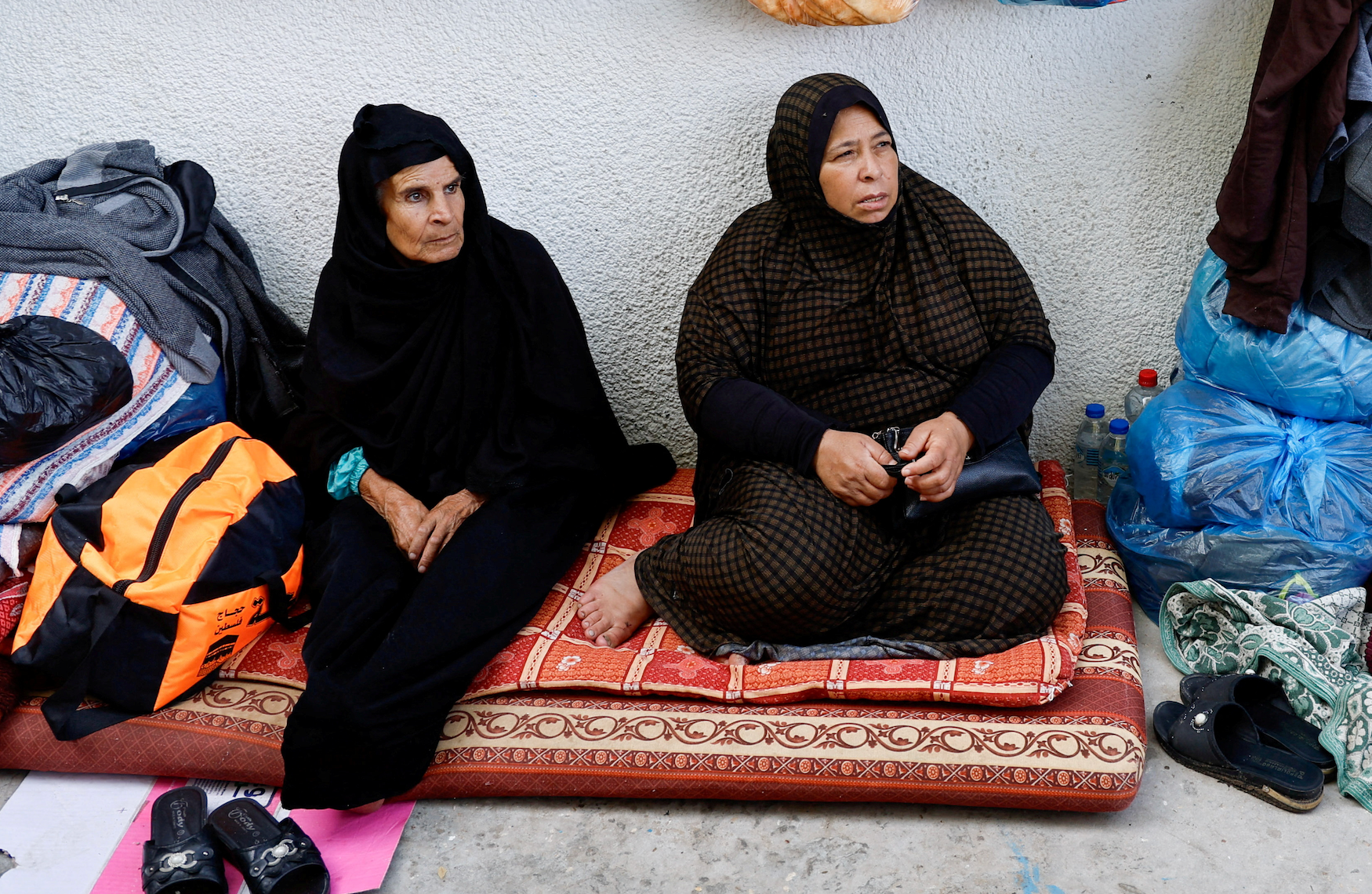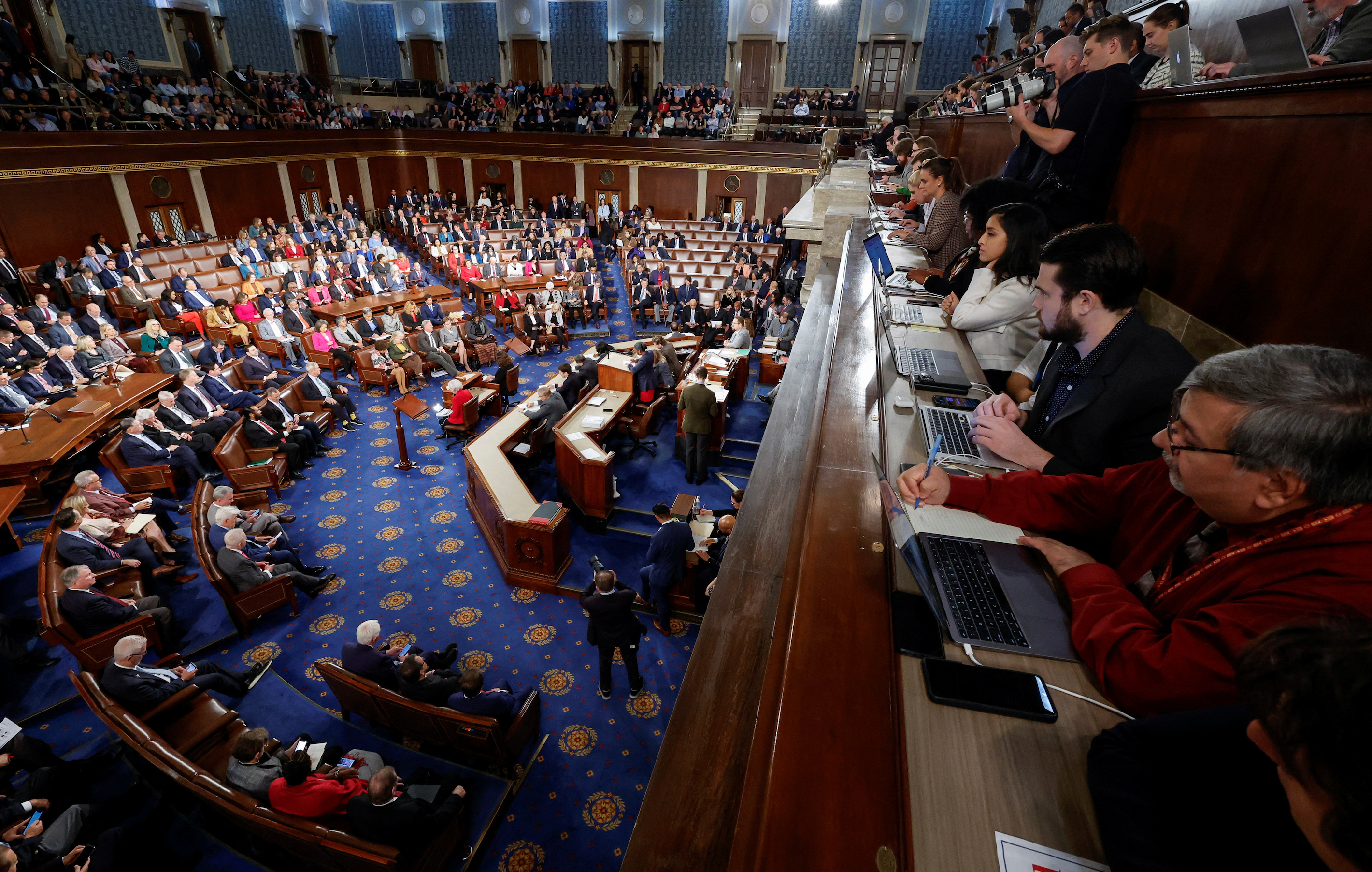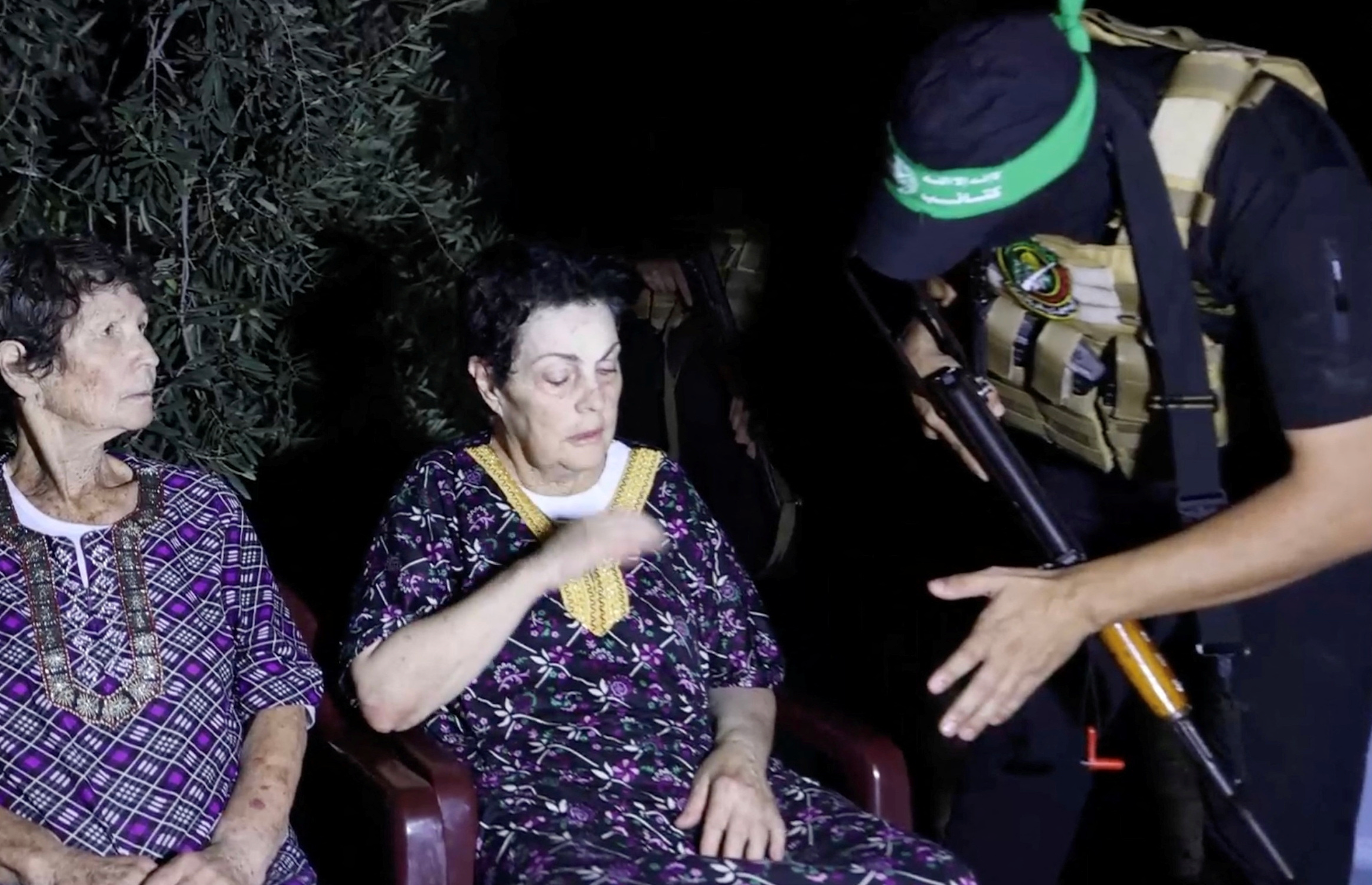
Gaza displaced show signs of disease from crowding and poor sanitation, doctors say
PHOTO CAPTION: Palestinian women, who fled their houses amid Israeli strikes, take shelter in a United Nations-run school, after Israel's call for more than 1 million civilians in northern Gaza to move south, in Khan Younis in the southern Gaza Strip, October 20, 2023. REUTERS/Mohammed Salem
By Nidal al-Mughrabi
GAZA (Reuters) -Doctors in Gaza say patients arriving at hospitals are showing signs of disease caused by overcrowding and poor sanitation after more than 1.4 million people fled their homes for temporary shelters under Israel's heaviest-ever bombardment.
Aid agencies have repeatedly warned of a health crisis in the tiny, crowded Palestinian enclave under an Israeli blockade that has cut off electricity, clean water and fuel, with only small U.N. convoys of food and medicine getting in.
"The crowding of civilians and the fact that most schools used as shelters are housing lots of people, it's a prime breeding ground for disease to spread," said Nahed Abu Taaema, a public health doctor at Nasser Hospital in Khan Younis.
Palestinian authorities say nearly 5,800 people have been killed by Israeli air and artillery strikes that followed the Oct. 7 attack by Hamas militants, who stormed Israel killing more than 1,400 people and grabbing more than 200 hostages.
Israel has told everybody living in the northern half of the 45km-long (28 mile) Gaza Strip to move south but its strikes have flattened districts throughout the enclave.
With all hospitals running out of fuel to power their generators, doctors have warned that critical equipment, like incubators for newborns, risks stopping.
The Hamas-run Health Ministry said 40 medical centres had suspended operations at a time when the bombardment and displacement are putting enormous strain on the system.
The World Health Organization warned that a third of Gaza hospitals were not operating. "We are on our knees asking for that sustained, scaled up, protected humanitarian operation," said WHO regional emergencies head Rick Brennan.
The private Indonesian Hospital, the biggest in north Gaza, said on Tuesday it had switched off everything except the last vital departments such as the Intensive Care Unit.
The only other hospital that had still been serving patients in northern Gaza, Beit Hanoun Hospital, stopped operations because of the intense bombardment of the town, the Palestinian Health Ministry said.
"If the hospital doesn't get fuel, this is going to be a death sentence against the patients in northern Gaza," said Atef al-Kahlout, the hospital's director.
'THE CHILDREN ARE ALL SICK'
In the temporary shelters where displaced Palestinians are crowding with their families hoping for safety from the bombs, people are starting to suffer from stomach complaints, lung infections and rashes said Abu Taaema of Nasser Hospital.
"It's hot in the tent under the midday sun and there are insects and flies... At night it's cold and there aren't enough blankets for everyone. The children are all sick," said Sojood Najm, a woman staying at a U.N. shelter.
She fled her home in Gaza City with her husband and three children and they have been living in a tent for nine days, unable to bathe. "Every day I cry to my mother," said Najm.
At a pharmacy, the owner said there were few stores left. People had stockpiled over-the-counter medicines, but there were concerns that treatments for chronic illnesses could run out.
While health concerns grow, it is still the intensifying bombardment that is causing most suffering in Gaza.
After an air strike in Khan Younis, Abdallah Tabash held his dead daughter Sidra, refusing to let go as he held her bloodstained face and hair. "I want to look at her as much as I can," he said.
Twins Wateen and Ahmed lost their mother in an Israeli air strike in Khan Younis and the 14-month-olds are now separated, with one in hospital and the other disconsolate and crying for his sister, their aunt said.
Their mother Amal Abu Mkheimar was killed as she nursed Ahmed, her body shielding him from the worst of the blast, while Wateen suffered burns across her body.
Ahmed, his cuts stitched by medics, was put into his aunt's care but Wateen remains in hospital, seemingly unable to recognise even her father according to relatives.
"Ahmed is at home, missing his sister. He is crying all the time. They say twins feel for one another," said his aunt, Alaa Abu Mkheimar.
(Reporting by Nidal al-Mughrabi; Writing by Angus McDowall; Editing by Janet Lawrence)









